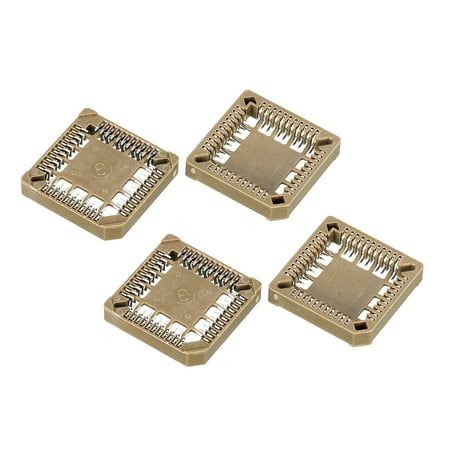Connectors are vital components in electronics that facilitate the connection and communication between various parts of electronic systems. In this article, we'll explore three common types of connectors: IC to board connectors, board to board connectors, and cable to board connectors, highlighting their features, applications, and importance in electronic design.

IC (Integrated Circuit) to board connectors are used to connect IC packages directly to printed circuit boards (PCBs). The chip to board connector allows ICs to be easily integrated into electronic systems without the need for soldering, enabling flexibility and simplifying maintenance and repair. Common types of IC to board connectors include:
Sockets: IC sockets provide a mechanical and electrical connection between an IC package and a PCB. They allow for easy replacement or upgrade of ICs without damaging the PCB.
BGA (Ball Grid Array) Sockets: BGA sockets are designed specifically for BGA IC packages, featuring an array of tiny solder balls that ensure reliable electrical contact with the PCB.
IC to board connectors are widely used in consumer electronics, computer hardware, and industrial control systems, where modular design and component interchangeability are essential.
Board to board connectors establish connections between two separate PCBs within an electronic device. These connectors allow for data transmission, power distribution, and signal routing between interconnected boards. Common board connector types include:
Mezzanine Connectors: Mezzanine connectors enable perpendicular mating between stacked PCBs, optimizing space and supporting modular design in compact electronic devices.
Backplane Connectors: Backplane connectors are used in high-speed data transfer applications, such as servers and networking equipment, where multiple PCBs need to communicate efficiently.
Board to board connectors are essential for creating complex electronic systems, including computers, telecommunications equipment, and automotive electronics.
Cable to board connectors are designed to interface with flexible cables or ribbon cables, providing a reliable connection between cables and PCBs. These connectors are used extensively in applications where flexibility and easy assembly are required. Common types of cable to board connectors include:
IDC (Insulation Displacement Connector): IDC connectors are used with ribbon cables, allowing for quick and efficient termination without the need for stripping insulation.
Wire-to-Board Connectors: Wire-to-board connectors are used with individual wires, providing a secure connection between cables and PCBs in various electronic devices.
Cable to board connectors are utilized in consumer electronics, home appliances, automotive wiring harnesses, and industrial machinery, offering versatility and convenience in cable management.
Selecting the appropriate connector type is crucial for optimizing electronic system performance, reliability, and manufacturability. Considerations when choosing connectors include:
Electrical Specifications: Ensure the connector meets voltage, current, and signal integrity requirements for the application.
Mechanical Durability: Choose connectors that can withstand mechanical stress, temperature variations, and environmental conditions.
Ease of Assembly: Select connectors that simplify assembly and maintenance processes, reducing production time and cost.
Compatibility: Ensure compatibility between connectors and other system components, including PCB layouts, cables, and IC packages.
At last, IC to board connectors, board to board connectors, and cable to board connectors are critical components of modern electronics, allowing for seamless interconnection and operation across electronic systems. Understanding the features, uses, and considerations associated with each type of pcb connector allows designers and engineers to make informed selections when optimizing electrical designs for performance, reliability, and flexibility. Connectors are truly the unsung heroes who keep our electronic equipment functioning smoothly and efficiently. As one of the leading PCB connector suppliers, Interposer is committed to social responsibility through various initiatives. Feel free to contact us and get more help.